
Above: An overview of Bergen from the top of Mount Fløyen.
Bergen is Norway's second largest city and located on the west coast of Norway with a population of 27,000. Trading in Bergen started in the 1020s and the city served as Norway's capital from 1217 to 1299.

Above: Bergen cityscape with Mount Fløyen in the background.
Undoubtedly, the most famous site in Bergen is Bryggen (Norwegian for the Wharf), a series of Hanseatic commercial buildings lining the eastern side of the fjord. Bryggen has since 1979 been on the UNESCO list for World Cultural Heritage sites.
Above: The front facade of Bryggen.
You can wander through the alleyways among the picturesque warehouses lining the street and waterfront which once housed German merchandise belonging to the Hanseatic League. The Hanseatics settled in Bergen around 1350 and had the monopoly on the trade with Northern Norway as well as the political power in the city for about 200 years.

Above: The alleys in Bryggen are very narrow. You can see the winch that would have been used to hoist goods up to the first floor above the shop.
The warehouses were filled with goods, particularly fish from northern Norway, and cereal from Europe. Throughout history, Bergen has experienced many fires, since, traditionally, most houses were made from wood. This was also the case for Bryggen, and as of today, around a quarter of the structures date back to the time after 1702, when the older wharfside warehouses and administrative buildings burned down. The rest predominantly consists of younger structures, although there are some stone cellars that date back to the 15th century.

Above: Traditional wooden houses in Bergen.
One of the other main attractions in Bergen is Fløibanen, a funicular which runs up the mountain of Fløyen. Officially opened on 15 January 1918, the funicular affords great views of the city from the top!
Above: A funicular descends from the top of Mount Fløyen.
One of the tours I went on during my time in Bergen, visited Troldhaugen, the home of Norwegian composer Edvard Grieg and his wife Nina Grieg. The site houses the Edvard Grieg Museum, a concert hall, Grieg’s villa, the hut where he composed music, and his and his wife's gravesite.
Above: Grieg's villa.
The building was designed by Grieg's cousin, the architect Schak Bull and was finished in 1885. Edvard Grieg himself called the building "my best composition hitherto" and he and his wife, Nina lived in Troldhaugen from April 1885 until his death in 1907.
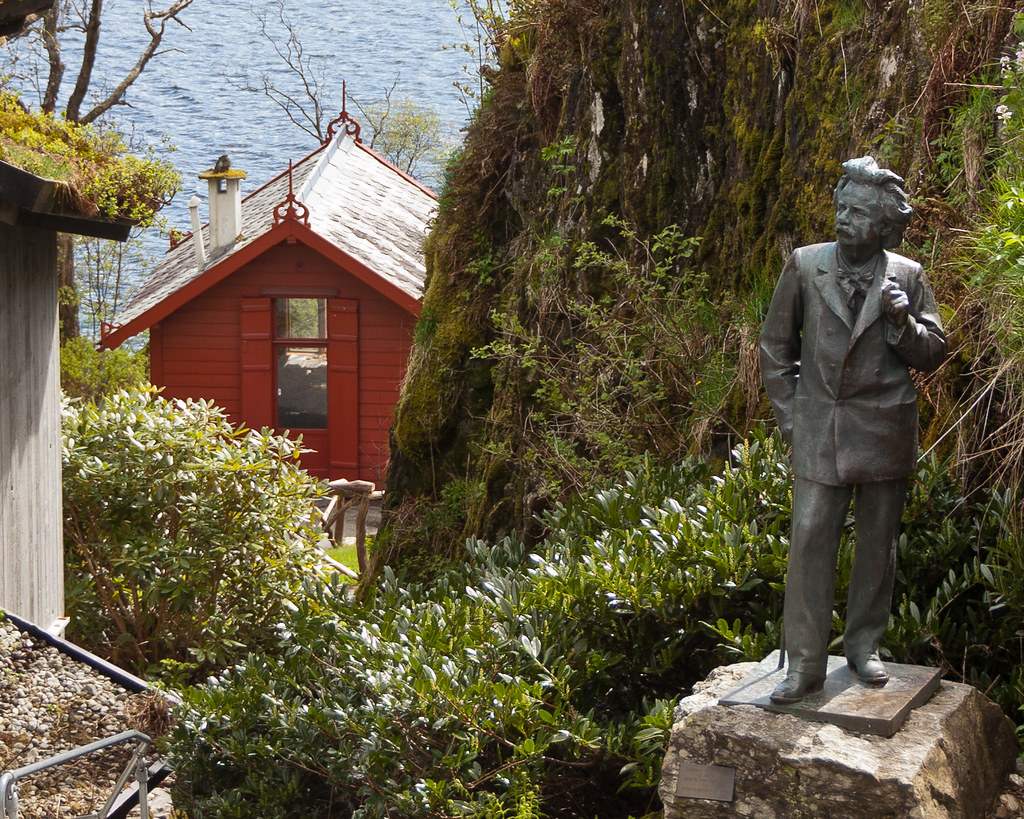
Above: A life-sized statue of Grieg (he was very short), with his composing hut in the background.
Troldhaugen is a typical 19th century residence with panoramic tower and a large veranda with Grieg's small composer's hut overlooking Nordås Lake. Grieg immortalized the name of his home in one of his piano pieces, Wedding-Day at Troldhaugen, Opus 65, No. 6. Grieg and his wife's ashes rest inside a mountain tomb near the house which I visited.
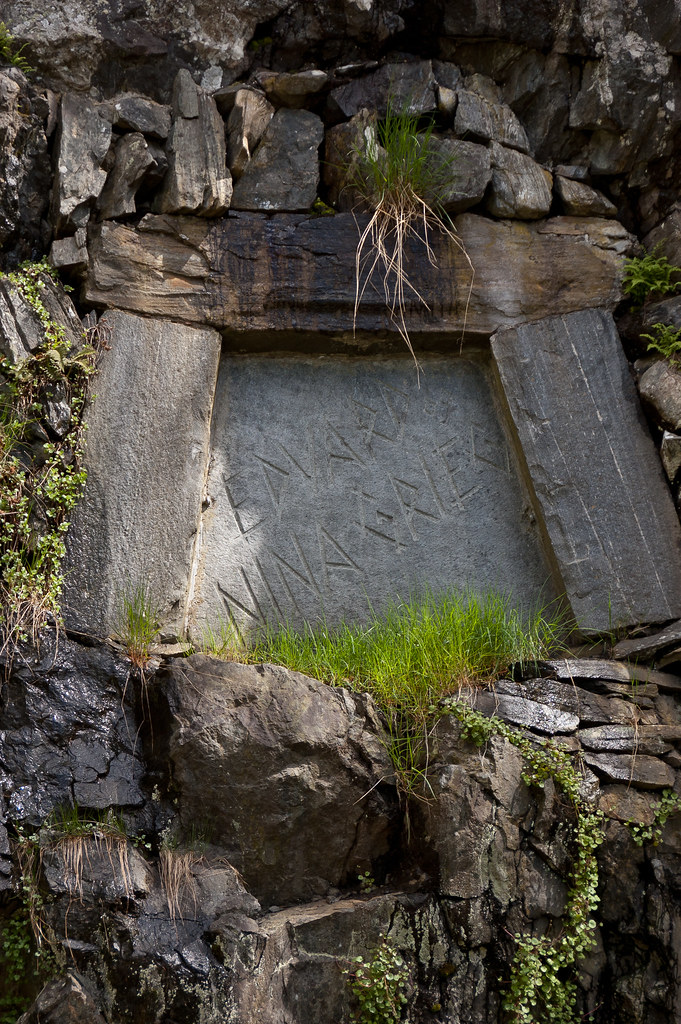
Above: Edvard and Nina Grieg's grave.
At the end of our tour, we also visited a Fantoft Stave Church, rebuilt after a fire completely destroyed the church in 1993 (a Satanist burnt the church down). The new church is an exact copy of the old one, which dated back to 1150. Take special note of the dragonheads and serpents on the roof—designed to frighten away evil spirits.
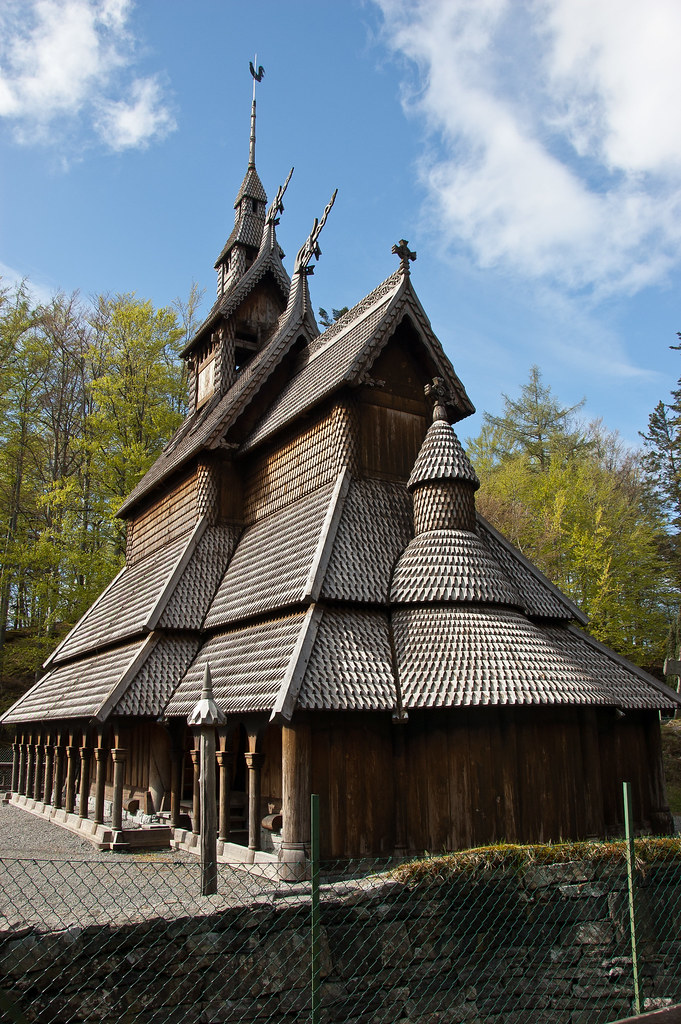
Above: The Fantoft Stave Church.
The church also features a stone cross outside, supposedly the first gathering point for religious services in the early days of Christianity. The interior is very dark and would have been even darker in the past when there were only candles!
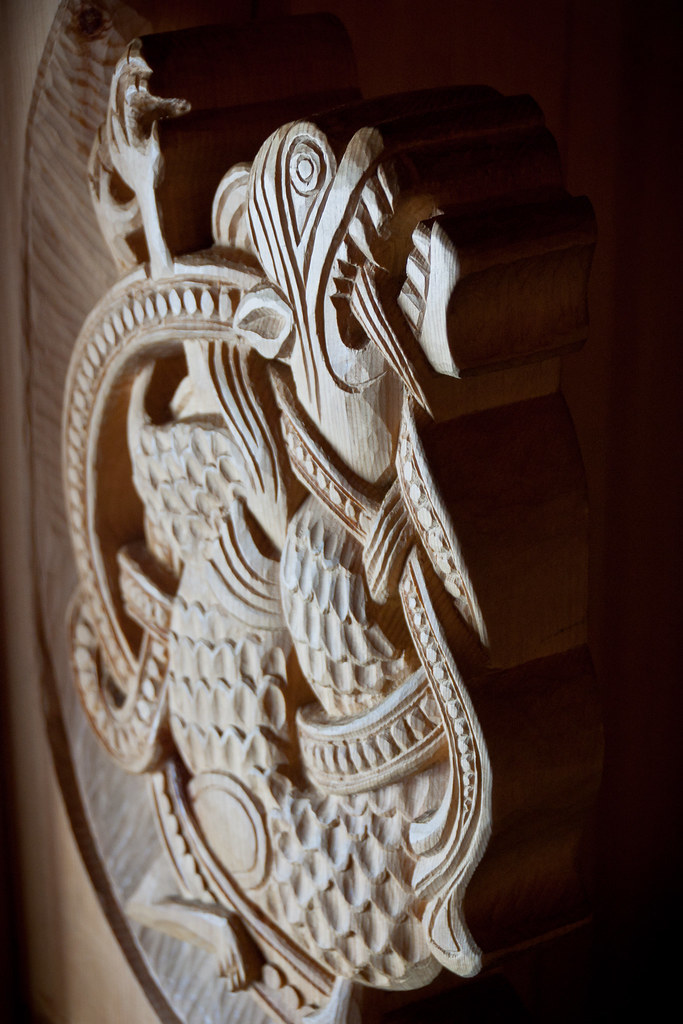
Above: Intricate carvings bookend the pews.
Thanks for reading! My final Norwegian post is coming up soon and I've saved the capital for last: Oslo!

No comments:
Post a Comment